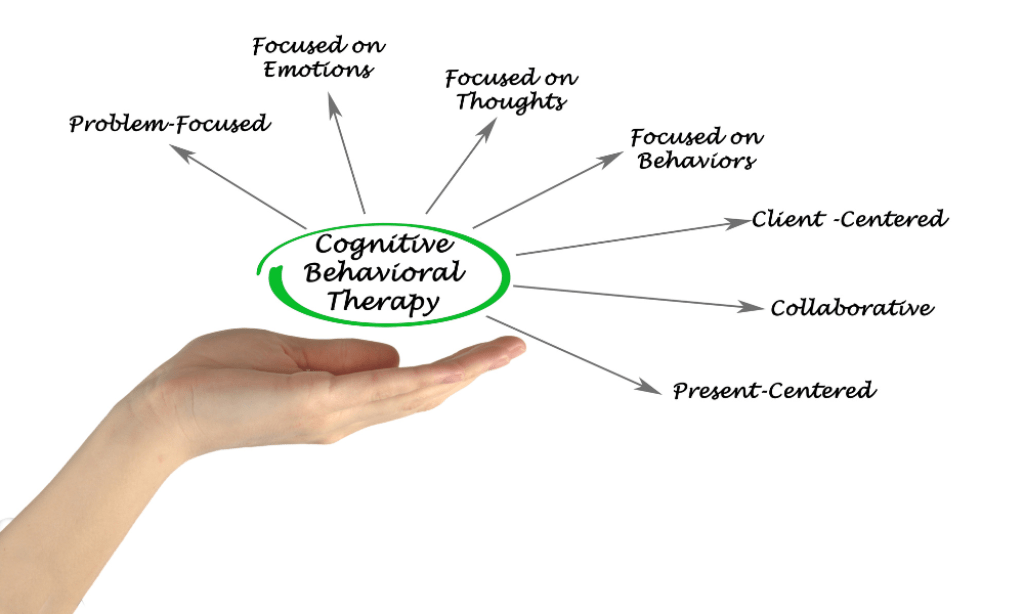Introduction
Procrastination refers to the act of delaying or postponing tasks or activities that need to be accomplished. It involves choosing immediate gratification or short-term relief over long-term goals or responsibilities.
While everyone may experience occasional procrastination, chronic procrastination can have detrimental effects on mental health.

Here are some ways in which procrastination can negatively impact mental well-being:
1. Increased Stress: Procrastination often leads to increased stress levels. As deadlines approach, individuals may experience heightened anxiety and pressure, as they realize they have less time to complete their tasks. This can result in a cycle of stress and procrastination, further exacerbating mental strain.
2. Reduced Self-Esteem: When individuals consistently procrastinate, they may feel a sense of guilt, shame, and disappointment in themselves for not meeting their obligations. This can erode self-esteem and self-confidence, leading to negative self-perception and a diminished belief in one’s abilities.
3. Decreased Productivity: Procrastination hampers productivity and efficiency. It creates a cycle of delay and rush, often resulting in subpar work quality. This can further contribute to feelings of dissatisfaction and self-doubt, impacting overall motivation and effectiveness.
 4. Impaired Mental Health: Chronic procrastination can have a significant impact on mental health. It can contribute to feelings of overwhelm, helplessness, and frustration. Procrastinators may experience increased levels of depression, anxiety, and even symptoms of burnout due to the constant pressure of unfinished tasks.
4. Impaired Mental Health: Chronic procrastination can have a significant impact on mental health. It can contribute to feelings of overwhelm, helplessness, and frustration. Procrastinators may experience increased levels of depression, anxiety, and even symptoms of burnout due to the constant pressure of unfinished tasks.
5. Damaged Relationships: Procrastination can strain relationships with others, particularly when it involves missed deadlines or unfulfilled commitments. It can lead to conflicts, disappointment, and a loss of trust, affecting both personal and professional connections.
6. Missed Opportunities: Procrastination often results in missed opportunities for personal and professional growth. By putting off important tasks or projects, individuals may lose chances to advance in their careers, learn new skills, or pursue their goals. This can lead to feelings of regret and hinder overall life satisfaction.
7. Perpetuating the Cycle: Procrastination tends to reinforce itself. When individuals repeatedly delay tasks, they may experience temporary relief or avoidance of discomfort. This reinforcement can create a habit of procrastination, making it increasingly challenging to break the cycle and engage in productive behaviors.
It is important to note that while procrastination can have negative impacts on mental health, it is a behavior that can be changed with the right strategies and support. Cognitive behavioral techniques, time management skills, and seeking professional help, such as cognitive hypnotic coaching, can be effective in overcoming procrastination and promoting better mental well-being.
The Role of cognitive hypnotic coaching in overcoming procrastination
Cognitive hypnotic coaching can play a significant role in helping individuals overcome procrastination by addressing the underlying cognitive patterns and beliefs that contribute to this behavior.

Here are some key ways in which cognitive hypnotic coaching can assist in overcoming procrastination:
1. Identifying Underlying Patterns: Cognitive hypnotic coaching aims to uncover the deep-seated cognitive patterns and beliefs that contribute to procrastination. The coach works with the individual to explore any irrational or unhelpful thoughts, fears, or self-limiting beliefs that hinder progress. By understanding these underlying patterns, individuals can gain insight into their behavior and begin to make positive changes.
2. Challenging Limiting Beliefs: Procrastination is often fueled by limiting beliefs and negative self-talk. Cognitive hypnotic coaching provides a safe and supportive environment to challenge and reframe these beliefs. The coach helps individuals recognize and replace unhelpful thoughts with more empowering and supportive beliefs that promote action and productivity.
3. Enhancing Motivation: Motivation is a key factor in overcoming procrastination. Cognitive hypnotic coaching utilizes various hypnotic techniques, such as visualization, positive affirmations, and suggestion, to enhance motivation and boost self-confidence. By accessing the subconscious mind, individuals can tap into their inner resources and develop a strong belief in their ability to accomplish tasks and overcome procrastination.

4. Developing Effective Coping Strategies: Procrastination often arises from difficulties in managing emotions, stress, and time effectively. Cognitive hypnotic coaching helps individuals develop effective coping strategies and techniques to handle these challenges. By learning to manage stress, set priorities, and develop healthy habits, individuals can reduce the tendency to procrastinate and increase their productivity.
5. Improving Time Management Skills: Time management plays a crucial role in overcoming procrastination. Cognitive hypnotic coaching assists individuals in developing practical time management strategies. The coach helps identify time-wasting habits and supports the implementation of techniques such as prioritization, scheduling, and creating deadlines. Through hypnosis, individuals can reinforce their ability to focus and concentrate on tasks, minimizing the inclination to procrastinate.
6. Accountability and Support: Cognitive hypnotic coaching provides individuals with accountability and support throughout the process of overcoming procrastination. The coach creates a non-judgmental space where individuals can share their progress, challenges, and successes. The coach holds individuals accountable for their commitments and provides guidance and encouragement. Additionally, seeking support from friends, family, or peers can also be beneficial in maintaining motivation and staying on track.
7. Sustaining Long-Term Change: Cognitive hypnotic coaching helps individuals not only overcome procrastination in the short term but also develop sustainable behavioral changes. Through regular coaching sessions and ongoing support, individuals can embed new habits and strategies into their lives, reducing the likelihood of falling back into old patterns of procrastination.
It’s important to note that cognitive hypnotic coaching is just one approach to overcoming procrastination. Each individual’s journey may vary, and it can be helpful to explore other strategies, such as cognitive-behavioral therapy (CBT) or self-help techniques, in conjunction with coaching to find what works best for them.
Finding the right course to develop practical skills:

Finding the right course to develop practical skills depends on your specific goals and interests. Here are some steps you can take to find a suitable course:
1. Identify Your Goals: Clarify the practical skills you want to develop. Consider your career aspirations, personal interests, and areas where you feel you need improvement. This will help you narrow down the type of skills you want to focus on.
2. Research Online Platforms: Look for reputable online learning platforms that offer a wide range of courses. Platforms like Udemy, Coursera, LinkedIn Learning, and Skillshare provide a vast selection of courses covering various practical skills.
3. Read Course Descriptions and Reviews: Read the course descriptions and reviews to understand the course content, learning objectives, and user feedback. Look for courses that align with your goals and have positive reviews indicating the course’s quality and effectiveness.
4. Check Instructor Credentials: Review the credentials and expertise of the instructors delivering the course. Look for instructors with relevant experience, qualifications, and positive feedback from students.
5. Assess Course Structure and Format: Consider the course structure and format to ensure it fits your learning style and schedule. Some courses are self-paced, allowing you to learn at your own convenience, while others have specific start and end dates or live sessions. Choose a format that suits your preferences and availability.
6. Look for Practical Application: Seek courses that emphasize practical application of skills. Look for hands-on projects, case studies, or real-world examples that allow you to practice and implement what you learn. Practical application is crucial for developing and honing your skills effectively.

7. Consider User Support and Community: Explore the level of user support and community interaction offered by the course. Some courses provide discussion forums, instructor assistance, or peer feedback, which can enhance your learning experience and provide additional support.
8. Assess Cost and Value: Consider the course fees and assess the value you will gain from the course. Compare prices, course duration, and the value you expect to receive in terms of knowledge, practical skills, and potential career advancement.
9. Seek Recommendations: Ask for recommendations from professionals in your field, colleagues, or friends who have taken similar courses. Their insights and experiences can help you make an informed decision.
Start with Free Trials or Samples: Many online learning platforms offer free trials or samples of their courses. Take advantage of these opportunities to get a feel for the course content, teaching style, and platform interface before making a commitment.
Remember to review the course requirements, prerequisites, and the time commitment needed to complete the course successfully. By following these steps and considering your specific goals and preferences, you can find a suitable course to develop practical skills and enhance your personal and professional growth.
Conclusion
In conclusion, cognitive hypnotic coaching offers a valuable approach to overcoming procrastination by addressing underlying cognitive patterns and beliefs while utilizing hypnotic techniques to enhance motivation and behavior change.
By identifying and challenging limiting beliefs, setting clear goals, developing effective time management skills, and enhancing motivation and self-confidence, individuals can break the cycle of procrastination and improve their productivity and well-being.
Cognitive hypnotic coaching provides a supportive environment, accountability, and ongoing support, making it a powerful tool for individuals seeking to overcome procrastination and achieve their goals.








